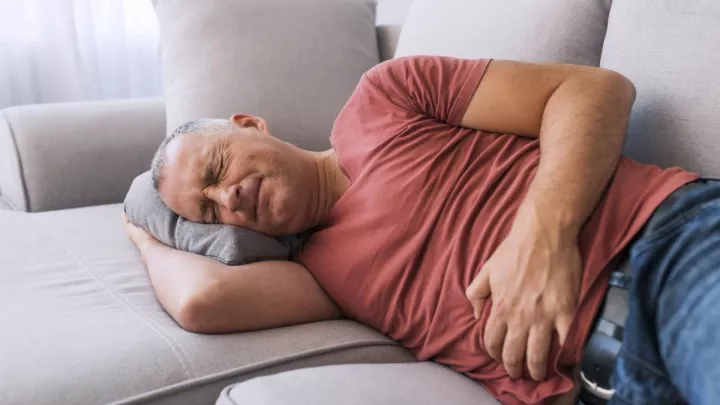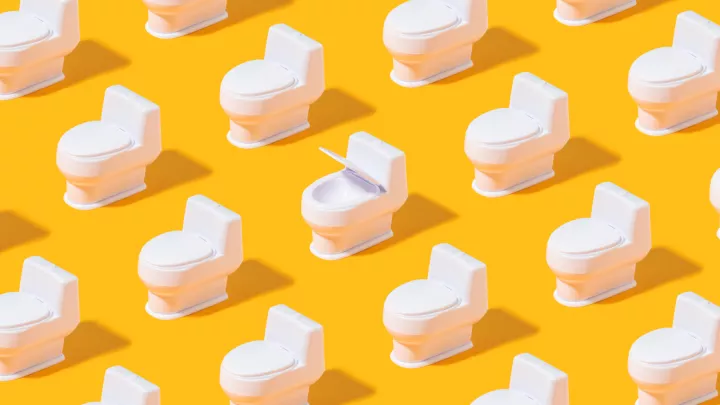How do laxatives work, and will they help with constipation?

Laxatives can help with constipation by drawing fluid into the colon (osmotic laxatives), increasing the bulk of stool (fiber supplements), or by increasing motility (stimulant laxatives). Whether or not they will work to relieve your constipation depends on the underlying cause.
“You’ll notice that the directions on most over-the-counter laxatives say not to use them for an extended period of time without contacting your doctor,” says colon and rectal surgeon Matthew Fuglestad, MD. “That’s because new onset constipation or changes in bowel habits can be a sign of colorectal cancer, bowel obstruction, complications of diverticular disease, or other anatomic reasons for constipation which can be masked by laxatives.”
What are the risks or side effects of using laxatives?
Side effects of laxatives vary by type, but the most common include cramping, bloating and diarrhea. Dehydration can also occur if you use laxatives more often than suggested or when higher doses are used as in a colonoscopy prep. “If you have kidney disease, certain laxatives may cause important electrolyte disturbances,” says Dr. Fuglestad. “However, even with normal kidney function electrolyte imbalances and kidney damage can occur with inappropriate use. It's important to ask your primary care provider if you should avoid any type of laxative before starting them.”
What types of laxatives work best?
Two of the most natural laxatives are:
Dietary fiber, which you get by eating fiber-rich foods or taking a fiber supplement.
Bulk-forming laxatives such as Metamucil®. These laxatives are made of plant-based fiber that draws water into the stool and bulks it up. This makes stool easier for the colon to pass and results in easier, more frequent bowel movements.
“Fiber supplements are a safe way to improve or eliminate constipation in many patients,” says Dr. Fuglestad. “On average, people who find their way to the Colorectal Surgery clinic for constipation, hemorrhoids, or other common anorectal complaints do not get the recommended 20 to 30g of dietary fiber daily. Increasing your daily fiber intake and staying hydrated are two healthy ways to begin treating constipation.”
Other over-the-counter laxatives include:
Stool softeners such as Docusate. These make it easier for stool to move through the colon. They’re generally considered less effective than a bulk-forming laxative but there’s low risk of harm.
Osmotic laxatives like MiraLAX®. These work by increasing the amount of water drawn into the colon and the stool, resulting in more frequent bowel movements. This type of laxative is commonly used for bowel prep before a colonoscopy.
Stimulant laxatives, such as Senna, are safe to take in the short term or as a rescue method for constipation. However, concerns remain regarding the long-term use of stimulant laxatives. Long-term use and dose escalation should be done under the guidance of a physician.
When should I see a doctor for constipation?
“There’s a range of what’s considered normal bowel function, so using laxatives to force a daily bowel movement isn’t beneficial to your health,” says Dr. Fuglestad. “If you use laxatives frequently or need higher doses of laxatives to have bowel movements, it’s important to talk to your doctor.”
If constipation is an ongoing concern, discuss it with your doctor during your annual checkup. They can help determine if your constipation is a symptom of something else. They can also recommend the best treatment for your constipation and advise you on using laxatives correctly.
“It’s important to talk to your health care team about constipation,” says Dr. Fuglestad. “Though it can be embarrassing to discuss, symptoms of constipation can be a sign of an underlying medical problem. Talking about your symptoms can get you on the right track for treatment.”
If you have a pelvic floor problem, for example, physical therapy is an important component of treatment and certain laxatives can make you feel worse. Talking to your health care provider or a GI specialist is the best way to identify the source of constipation and treat it appropriately.
Call 800.922.0000 or schedule online for an appointment with a primary care provider or to see a colorectal surgeon or gastroenterologist.







